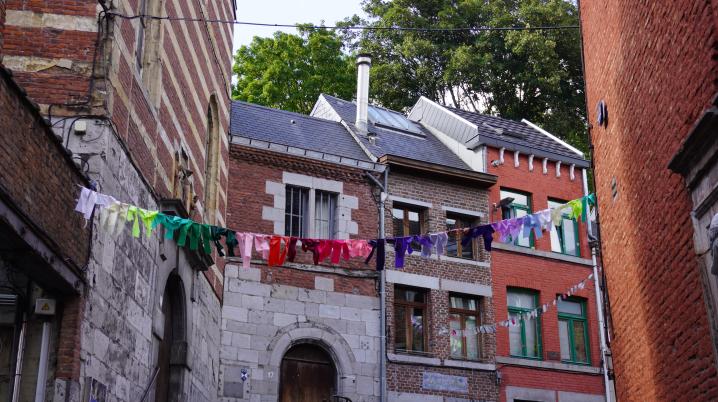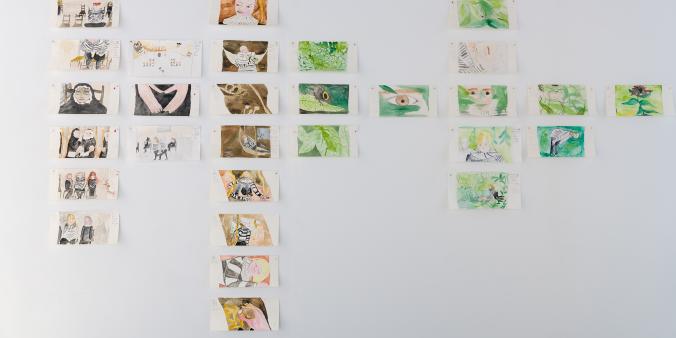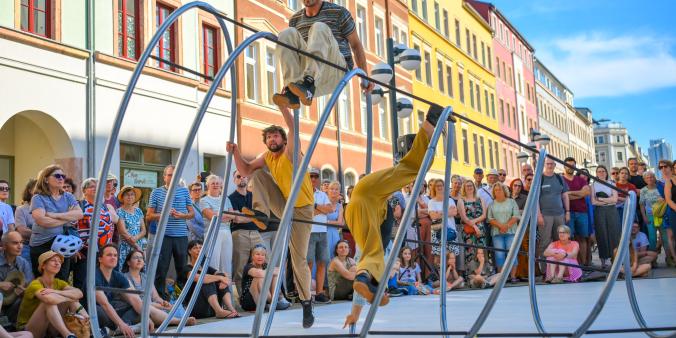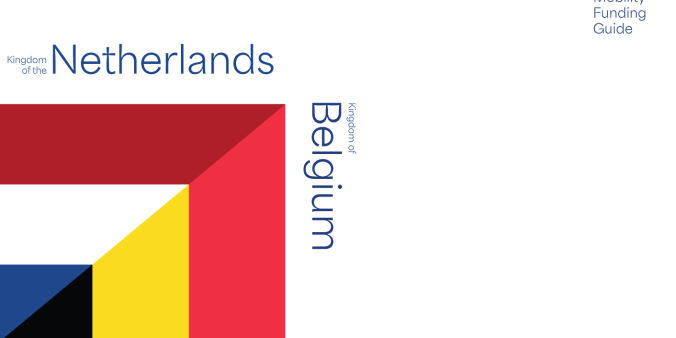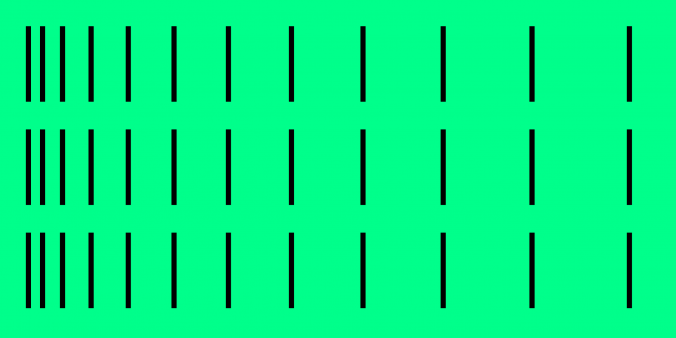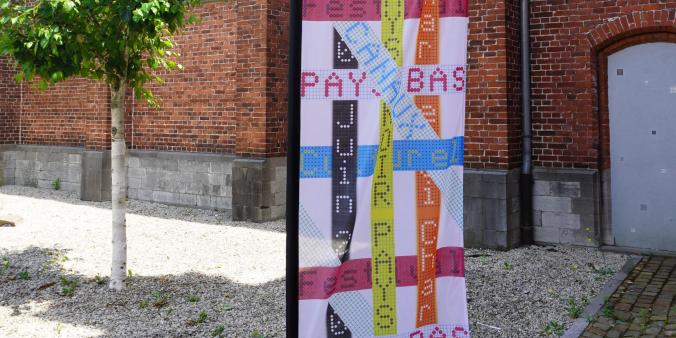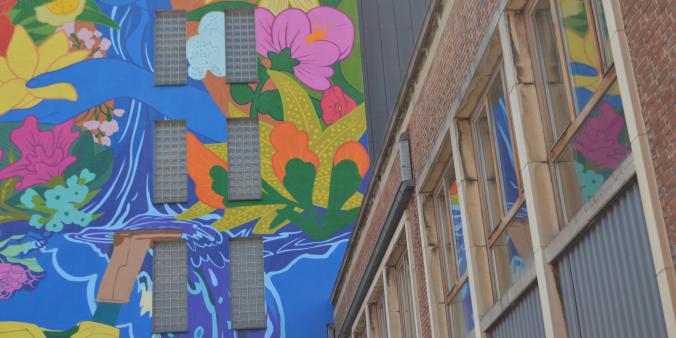
This is the second of the three-part article series with a focus on the three language communities in Belgium. In this piece, our advisor Astrid Mörk writes about her visit to Liège, located in the French-speaking part of Belgium.
When I enter Liège, the smell of fresh waffles hits me immediately. It is my first time in this Belgian city, located in Wallonia, the French-speaking part of the country. Even though the train station looks like a more futuristic version of Rotterdam Central Station, Liège is not necessarily flashy. However, I feel that the city’s beauty lies in its character. Unlike Amsterdam or other tourist cities, you can actually sense the rhythm of daily life here, giving the city an unpretentious charm. From what I hear, Liège is becoming increasingly interesting for artists and makers – and rightly so. During my visit, I met Maxime Moinet and Sophie Delhasse, both curators at Art au Centre, and Carl Havelange, director at Trinkhall Museum, to talk about their work and Liège’s cultural landscape. Below, I share some interesting cultural initiatives and organisations.
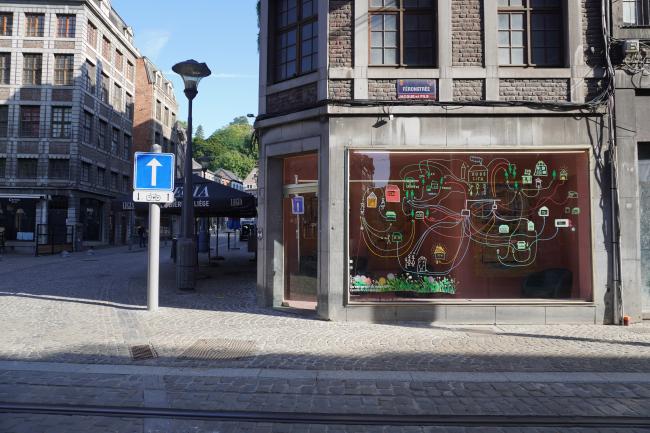
Art au Centre
Art au Centre is an exhibition route in the city centre of Liège, using empty shop windows to showcase art works from local and international artists. Since 2019, Art au Centre aims to revitalize the centre of the city through art and to offer visitors an artistic journey through Liège. Art au Centre takes place three times a year, promoting art in the public space with this alternative form of exhibiting art works. The selection of artists is done by young contemporary art curators, among others Maxime Moinet and Sophie Delhasse. Many artists whose work is being showcased come from Belgium and its neighbouring countries. Among those currently exhibited are for example the Netherlands-based Hattie Wade and Jorge de la Cruz. Art au Centre is part of Very Contemporary, the network of contemporary art venues in the Meuse-Rhine Euregion. This network uses the border region of Belgium, the Netherlands and Germany as its playground and offers a variety of exhibitions and events.
The current exhibition tour of Art au Centre runs until until 31 August. Artists who are interested in participating are encouraged to keep an eye on the open calls.
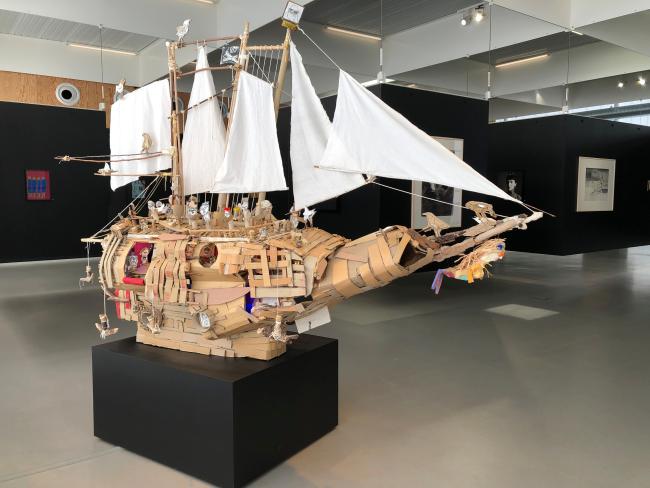
Trinkhall Museum
The Trinkhall Museum is a contemporary art museum located in Liège, which re-opened its doors in June 2020. The museum owns an international collection of art works produced in a workshop context by fragile artists, meaning artists with mental disabilities, cognitive impairment or severe psycho-social vulnerabilities. In those workshop settings, the fragile artists are supported by mentors who are artists themselves. Trinkhall Museum wants to actively remove itself from the stereotypes of ‘outsider art’ and free its collection from the categories that are usually connected to art brut. The museum sees the workshops as a collective way of creating, even if artists work there individually. The workshops help us understand creative processes, which Trinkhall Museum explores further through its exhibitions, focusing on both fragile artists and art in general. Being fragile should not say anything about the nature of aesthetics of art. ‘’After all, fragile artists are as fragile as we all are’’, says Havelange. ‘’The mental or cognitive fragility of the artists in the collection is in no way synonymous with weakness or mediocrity but, on the contrary, with strength of expression, which never ceases to dazzle us and set us in motion.’’
The current exhibition, ‘Melancholies’, runs until April 2026, alongside a solo exhibition by Inès Andouche, on view until October 2025.
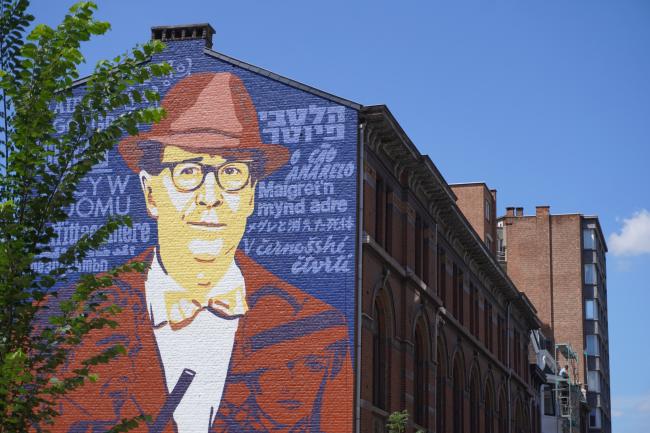
What else to discover in Liège?
More contemporary and visual art can be found at Museum La Boverie (located in a beautiful park), Space Collection, Les Brasseurs, or during the annual Biennale de l'Image Possible.
Music enthusiasts can check out Micro Festival, an alternative/indie music festival which takes place this weekend (beginning of August) in the artsy Saint-Léonard neighbourhood of Liège. Each year, the programme is filled with international bands, including performances of Netherlands-based musicians. In addition to that, the annual Jazz à Liège festival offers an international program, with a blend of established artists and emerging talents, taking place at different venues across the city. Throughout the year, cultural venues such as Le Hangar and La Zone regularly host live events.
There is also multiple interesting performing art festivals and locations to keep in mind. For example, the next edition of Festival du Liège, an international festival of dance, theatre and contemporary music, is scheduled for 2027. Furthermore, the Théâtre de Liège programs international ensembles and companies, and is home to the annual international Festival Pays de Danses.
Funding
Are you looking for funding for your project? Check out our updated Cultural Funding Guide for the Netherlands and Belgium, as well as the open call for support from the Netherlands Embassy in Brussels (deadline 12 November). Or contact our Belgium Advisor Astrid Mörk.
